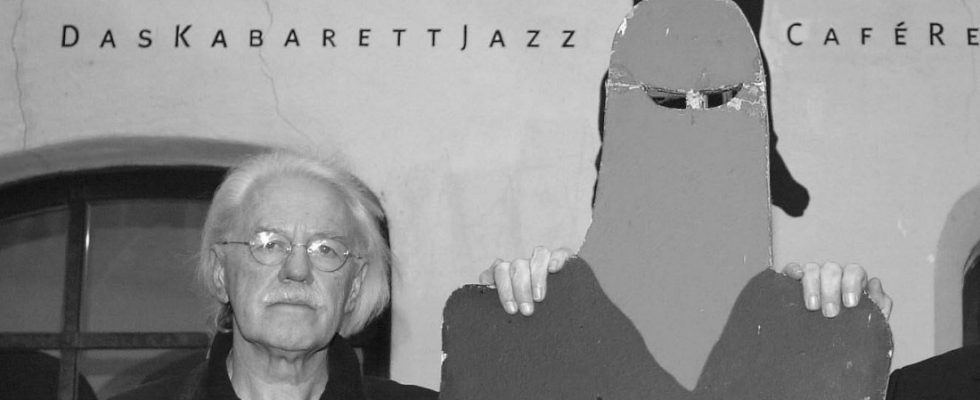Edgar Liegl and Walter Landshuter founded the famous executioner’s house in Passau in 1977 out of their desire to resist the rule. They created a stage for Bruno Jonas, Sigi Zimmerschied and many other word acrobats on which they could rail against God and the world – especially in the early years. This created unease in the three-river city, which is dominated by the Catholic Church and the CSU, and where the local press was also firmly on the side of the powerful.
“The Heavenly Conference”, the first play by Jonas and Zimmerschied, caused the greatest outrage in Passau. The accusation of supporting blasphemy weighed on everyone involved for a long time, but Liegl and Landshuter did not let it get them down. The duo L & L, as Liegl called them, wrote German cabaret history. Back then, cabaret stages were still places of provocation and counter-publicity, Liegl said in retrospect in an SZ interview. They were obsessed with the idea of changing the cultural and political conditions in Passau.
Liegl was the commercial manager of a car dealership in the 1970s, but he had something completely different in mind. While Landshuter stayed in the executioner’s house, which was purchased cheaply by Liegl and his wife at the time but was in need of renovation, he moved to Munich. After a short time he felt less like a Lower Bavarian than a Schwabinger. He began to study politics and then became a lecturer himself, including for “cultural and media theory” at the FH, now the Munich University of Applied Sciences. He enjoyed the free-spirited flair of the big city, put silk scarves around his neck and often strolled around watching people. His love of theater, literature and philosophy was contagious to others. Liegl was “light-footed, happy-go-lucky, springy,” says Landshuter, very different from himself.
“Financially, the early days were difficult, but it was also important for us to have him in Munich,” Landshuter continued. Liegl made connections with cabaret artists and musicians, who he then brought to Passau. Almost every weekend he went back to his old hometown and brought his lightness with him.
In 1983, Landshuter and Liegl launched the “Executioner’s Bevel” cabaret award. The first prize winner was Hape Kerkeling, who was 18 years old at the time, and Liegl placed the heavy ax into the student’s hands. Kerkeling came to the executioner’s house again for the 40th competition in December 2023. He expressly sent his greetings to Liegl, who could not be there for health reasons.
The fact that Liegl will never be there again is a big shock to the team at the executioner’s house. “He will be missed, it’s absolutely sad for us,” says Matthias Ziegler, the current executioner’s house operator. Liegl gradually sold him the property with a stage, inn and cinema. “He always had an Adorno saying on his lips,” says Walter Landshuter, but he only had one laconic sentence left for death: “Everyone must go amoi.” On the morning of January 4th, Edgar Liegl left, surprising everyone.
He would have been 85 years old in February. He didn’t manage to write a book about “strolling”. According to his wishes, he will be buried in Passau. There is a book of condolence in the executioner’s house.

